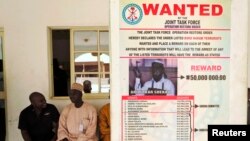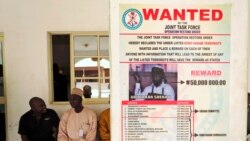The United States is stepping up efforts to combat violent extremism in West Africa, designating the Boko Haram and Ansaru militant groups that are creating havoc in Nigeria as international terrorist organizations.
We are working closely with the Nigerian government and its neighbors to address the threat posed by these groups in a comprehensive manner: enhancing security force professionalism, improving forensics and investigative capacity and strengthening Nigeria’s criminal justice system. Our assistance also stresses the importance of protecting civilians in a manner that ensures that human rights are protected and respected.
Moving now to formally designate Boko Haram and Ansaru, a Boko Haram splinter, as international terrorist groups will give U.S. agencies such as the Treasury and Justice Departments the power to block their financial and business transactions. It also makes it a crime for any American to provide the groups with material support. This will cut off monies they need to conduct their attacks and other operations.
Exploiting political discontent to gain some popular support, Boko Haram has battled the Nigerian government since 2009, attacking police stations, jails and government offices. Civilian targets have also been struck including mosques and churches. So too international targets, including the United Nations building in Abuja two years ago.
The group and Ansaru are blamed for thousands of deaths in northeast and central Nigeria, where the government has declared a state of emergency. While the groups’ primary focus has been Nigeria, there is growing evidence that they have formed links with the al-Qaeda affiliate in West Africa and other extremist groups in Mali. Because of this, they are seen as a threat to other nations, including the United States.
These designations are an important and appropriate step, but only one tool in what must be a comprehensive approach by the Nigerian government to counter these groups by a combination of law enforcement, political and development, as well as military engagement, to help root out violent extremism while also addressing the legitimate concerns of the people of Northern Nigeria. All of our assistance to Nigeria stresses the importance of protecting civilians, adhering to the rule of law and respecting human rights.
We are working closely with the Nigerian government and its neighbors to address the threat posed by these groups in a comprehensive manner: enhancing security force professionalism, improving forensics and investigative capacity and strengthening Nigeria’s criminal justice system. Our assistance also stresses the importance of protecting civilians in a manner that ensures that human rights are protected and respected.
Moving now to formally designate Boko Haram and Ansaru, a Boko Haram splinter, as international terrorist groups will give U.S. agencies such as the Treasury and Justice Departments the power to block their financial and business transactions. It also makes it a crime for any American to provide the groups with material support. This will cut off monies they need to conduct their attacks and other operations.
Exploiting political discontent to gain some popular support, Boko Haram has battled the Nigerian government since 2009, attacking police stations, jails and government offices. Civilian targets have also been struck including mosques and churches. So too international targets, including the United Nations building in Abuja two years ago.
The group and Ansaru are blamed for thousands of deaths in northeast and central Nigeria, where the government has declared a state of emergency. While the groups’ primary focus has been Nigeria, there is growing evidence that they have formed links with the al-Qaeda affiliate in West Africa and other extremist groups in Mali. Because of this, they are seen as a threat to other nations, including the United States.
These designations are an important and appropriate step, but only one tool in what must be a comprehensive approach by the Nigerian government to counter these groups by a combination of law enforcement, political and development, as well as military engagement, to help root out violent extremism while also addressing the legitimate concerns of the people of Northern Nigeria. All of our assistance to Nigeria stresses the importance of protecting civilians, adhering to the rule of law and respecting human rights.






